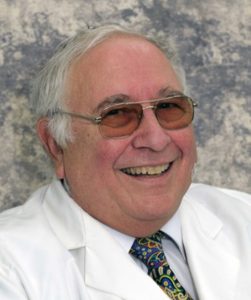Irritable Bowel Syndrome is a chronic functional disorder of the gastrointestinal tract which is characterized by abdominal pain, altered bowel habits and bloating, in the absence of more serious structural disorders which are ruled out by various blood tests, imaging studies like CT Scans, and interventional studies such as upper GI endoscopy or Colonoscopy.
Approximately 10-15% of the adult and adolescent population suffers from some form of irritable bowel syndrome (IBS) of which there are several subtypes: Patients with IBS-C complain mainly of constipation, bloating and occasional abdominal pain.
Patients with IBS-D experience mainly diarrhea with bloating and abdominal pain. IBS-M is associated with alternating symptoms including both diarrhea and constipation.
There are certain situations in which the Gastroenterologist will recommend direct visualization of the bowel by the painless insertion of an special instrument into the upper GI tract (Endoscopy) or the lower bowel (Colonoscopy).
These situations include serious rectal bleeding, unexplained iron deficiency anemia, abdominal pain that awakens a patient from sleep, or a family history of colorectal cancer, inflammatory bowel disease (IBD) like ulcerative colitis or Crohn’s Disease, or malabsorption syndromes like Celiac Disease.
To manage irritable bowel syndrome effectively it is important to establish a good relationship with your doctor. For mild and intermittent symptoms that do not impair quality of life, all that may be needed are lifestyle and dietary modifications, exercise, and nutritional education, rather than specific medications.
It is important to discover whether food intolerance, lactose intolerance or Gluten intolerance are present. Patients may benefit from the exclusion of gas-producing foods such as beans, cabbage, onions, celery, prunes, carrots, raisins, bananas, apricots, Brussels sprouts and caffeine.
Additionally, it may be helpful to follow a diet low in fermentable substances contained in fruits, vegetables, poultry, fish, legumes, grains and eggs. Your doctor may also recommend the avoidance of large meals, or foods high in fat or insoluble fiber. Mild laxatives and a stool softener may be helpful for constipation.
Fortunately, for more difficult cases there are new classes of medications available for both the IBS subtypes that are associated with constipation and with diarrhea. For constipating IBS-C there is a new drug class of guanylate cyclase agonists such as Linzess which is very effective in relieving this symptom and is not habit-forming.
Another class of drugs for IBS-C is Amitiza which is a locally acting chloride channel activator. The newest drug is Trulance which increases intestinal fluid secretion and motility. These medications are effective, but should not be given to patients younger than eighteen.
IBS-D (diarrhea) is one of the most difficult conditions to treat, and is traditionally treated with antidiarrheal, antispasmodic and antidepressant drugs, with mixed results. Fortunately, a new non-absorbable anti biotic, Xifaxan, has been shown to be effective when given in an adequate dose three times daily for two weeks.
Although IBS may be challenging to manage, there are many options today for patients suffering with abdominal pain, bloating and diarrhea or constipation, and the treatment of each patient must be tailored to their particular symptoms.
To learn more about this condition, call 718-692-5300

Dr. Leslie Honikman is a board certified gastroenterologist who serves as clinical chief of the division of gastroenterology at New York Community Hospital. He is an expert in interventional gastroenterology.
You must be logged in to post a comment.